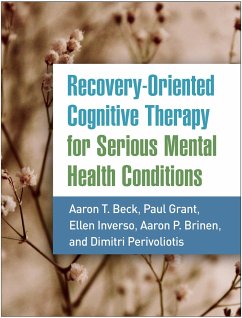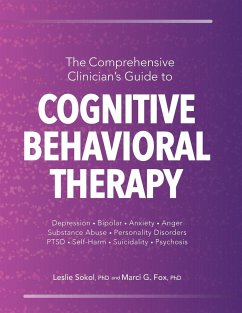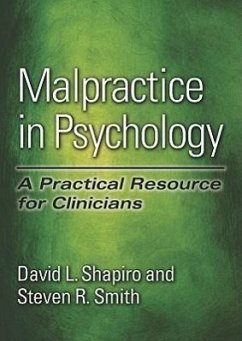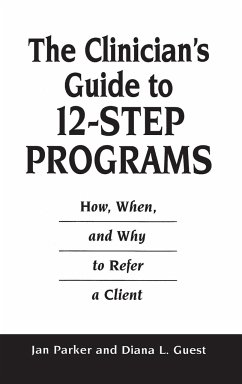Nicht lieferbar
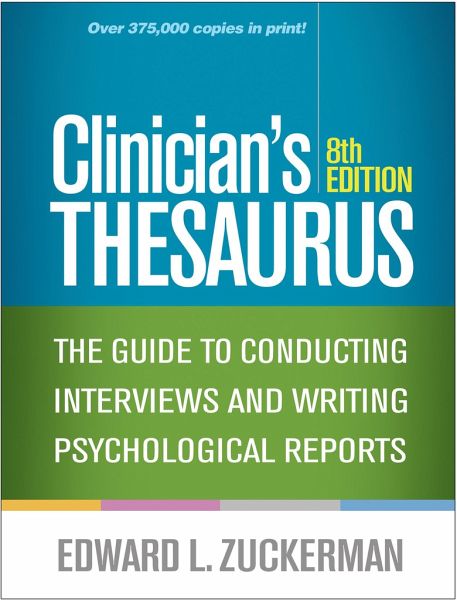
Edward L Zuckerman
Gebundenes Buch
Clinician's Thesaurus
The Guide to Conducting Interviews and Writing Psychological Reports
Versandkostenfrei!
Nicht lieferbar




Hundreds of thousands of students and early-career professionals have relied on this authoritative report-writing tool, now updated for DSM-5/ICD-10-CM and newer types of evaluations.
Edward L. Zuckerman, PhD, consults and creates effective practice tools for clinicians. He found his life's passion while working as a psychiatric aide at New York's Bellevue Hospital in the 1960s. Dr. Zuckerman has worked with adults in a variety of clinical contexts, acted as liaison with state hospitals, taught undergraduates, and maintained an independent practice in general clinical psychology for many years. He lives in rural western Pennsylvania.
Produktdetails
- Verlag: Guilford Publications
- 8th edition
- Seitenzahl: 400
- Erscheinungstermin: 16. April 2019
- Englisch
- Abmessung: 277mm x 206mm x 28mm
- Gewicht: 1157g
- ISBN-13: 9781462548200
- ISBN-10: 1462548202
- Artikelnr.: 61646623
Herstellerkennzeichnung
Libri GmbH
Europaallee 1
36244 Bad Hersfeld
gpsr@libri.de
Für dieses Produkt wurde noch keine Bewertung abgegeben. Wir würden uns sehr freuen, wenn du die erste Bewertung schreibst!
Eine Bewertung schreiben
Eine Bewertung schreiben
Andere Kunden interessierten sich für




